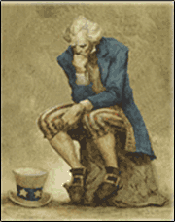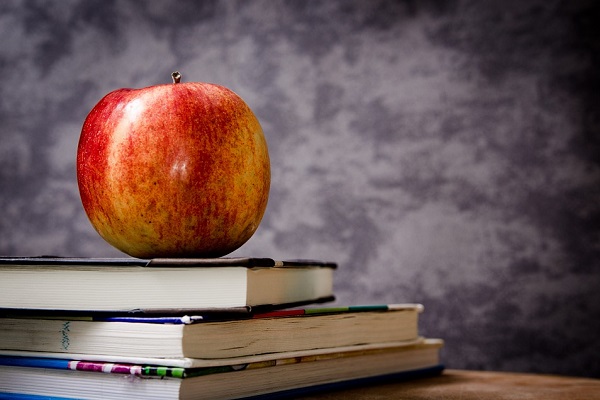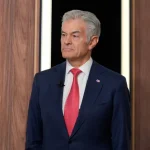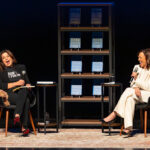
–>
September 17, 2022
The politicization of the education system has destroyed parent-teacher relations. Instead of encouraging healthy communication among parents, teachers, and administrators, public school officials have continued undermining parental rights and implementing their own political ideologies into coursework. Teachers unions work to vilify concerned parents and label them as “extremists” for showing up and trying to be involved in their children’s educational process.
‘); googletag.cmd.push(function () { googletag.display(‘div-gpt-ad-1609268089992-0’); }); }
Sixty-eight percent of parents surveyed by The Learning Heroes expressed concerns about politicians making curriculum decisions. Eighty-two percent of parents recently admitted in a Harris Poll that they are willing to change their political affiliation over educational policies. Trust in the public education system has dropped to a second all-time low, and conservative and moderate teachers recognize this. They are leaving left-leaning in favor of private schools, microschools, and homeschooling options.
I have been homeschooling my children for over 10 years now. My family was forced out of the public education system when the district that served us lost its accreditation. I also work as an English teacher at our local co-op.
I do not have an education degree, but I have worked in professional writing for over a decade. My lengthy experience working with various genres has offered just as much credibility as any teaching certificate. Instead of learning from someone who has only been trained to teach, my students are gaining insider knowledge from someone who writes for a living. In exchange, I am rejuvenated with hope for the future as I teach creative writing to upper elementary students and also high school journalism.
‘); googletag.cmd.push(function () { googletag.display(‘div-gpt-ad-1609270365559-0’); }); }
Being in charge of educating a group of students is important work. Critical thinking and unbiased teaching methods are my baseline. I consider these to be the most important principles of exchanging information (and education is nothing more than a sophisticated exchange of information). It is easy work when helping ten-year-old children decide what kind of monster to put in their fairy story, but it is more difficult in my journalism class.
Each week, I bring in articles to share with my students before we move on to our writing exercises. Sometimes I work to display examples of great writing; others, I’m presenting what not to do to your reader. I like to offer a healthy mixture of seriousness, professionalism, satire, and inspiration, but above all, I wish to be politically unbiased.
During our lessons, I have no intention of instructing my students on how or what to think of any given subject. Instead, our classes are based on inquiry, exploration, and self-expression. There is nothing I love more than to hear students describe their own independent thoughts.
I also know that I have a responsibility to my students. I am being trusted by the other adults in my community to help educate their children. While their children may be “my students,” they do not belong to me in any capacity.
This is where many alternative school teachers’ opinions differ from that of current public school educators. As the debate over how and when identity politics should be taught rages on, some teachers have declared, “I’m your mom now” to LGBT students who do not feel accepted by their parents.
That sentiment may be figurative, but our country is experiencing a serious youth mental health crisis. Students are more confused than ever. They are struggling with various internal issues, and educators who overstep their boundaries, or even pretend to have any legal claim over children, are sometimes doing more harm than good.
‘); googletag.cmd.push(function () { googletag.display(‘div-gpt-ad-1609268078422-0’); }); } if (publir_show_ads) { document.write(“
It is my job as an educator to be understanding, honest, and unbiased. I can be caring without trying to replace a child’s mother. I can offer support without encouraging children to join movements or become activists. Too many educators in the public education system cannot fathom this. They believe that it’s impossible to be apolitical.
This philosophy was recently described by former high school English teacher Summer Boismier. She opposed her Oklahoma City school policy, which restricts politically divisive materials from being discussed into the classroom. Instead of contacting her union representative or local lawmakers, or appealing to parents, she took it upon herself to give students access to books that are not allowed in school.
Instead of organizing an independent student book club ─ with the approval of parents ─ she decided that what she wanted for these children was what mattered. It wasn’t a matter of responsibility to the community, or her class; it was a selfish matter of getting her way. She decided that her beliefs were more important than state guidelines, which were passed by government officials who were elected by the people to represent the people.
Whether she agreed with the policy or not, she decided to distribute unapproved content to minors without parental consent. This is the major issue for those who continue walking away from the education system. This is why parents are not supporting teachers — because teachers are not supporting them or their wishes.
When I stand before my students, I don’t just think of their needs, but also their families’ needs. Their parents chose to homeschool for their own reasons, and everyone’s story is personal. Some of my students are disabled; some have behavioral issues. Despite this, I enjoy educating each and every one of them because I know that I am just one small component of their education and all of the various influences they will experience in their lives.
Instead of selfishly impressing my politics, my religion, and my view of how a society should run, I never forget my place. I know that I am providing a service. Parents text and email me with questions, concerns, and words of encouragement. We communicate well because we work together for the benefit of the children.
It is this mutual respect that helps breeds a positive community atmosphere. Having that support makes it easier to want to openly teach all sides of an issue in order to give students the freedom to choose what they believe. They discuss what they’ve learned with their parents and then return with more interest.
Showing both sides of a story is an important aspect of my journalism class. I use both liberal and conservative perspectives to help students discuss their thoughts and figure out who they are. Instead of telling them to get upset about injustice, I let the events we read about speak for themselves. Most often, these teenagers aren’t sure what to think. They’re young and just realizing the many shades of life.
Any teacher can work to build strong relationships with parents and students without recruiting them for political battles. It all starts with recognizing and respecting the responsibility that all educators have to families. If teachers want more support, they need to focus on imparting knowledge instead of creating more unemployed activists. Everything else falls into place once students are allowed to view the world without being told how to see it or what lens to view it through.
Jessica is an education news reporter for Go 2 Tutors, homeschooling mother of four, and author of Homeschooling on a Budget. Her work has been featured by The Epoch Times, The Federalist, The New American, Evie Magazine, The St. Louis Post Dispatch, and many more.

Image: jarmoluk via Pixabay, Pixabay License.
<!– if(page_width_onload <= 479) { document.write("
“); googletag.cmd.push(function() { googletag.display(‘div-gpt-ad-1345489840937-4’); }); } –> If you experience technical problems, please write to [email protected]
FOLLOW US ON
<!–
–>
<!– _qoptions={ qacct:”p-9bKF-NgTuSFM6″ }; ![]() –> <!—-> <!– var addthis_share = { email_template: “new_template” } –>
–> <!—-> <!– var addthis_share = { email_template: “new_template” } –>







